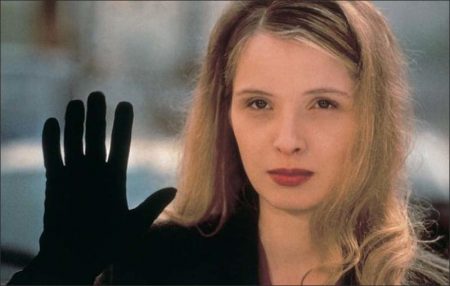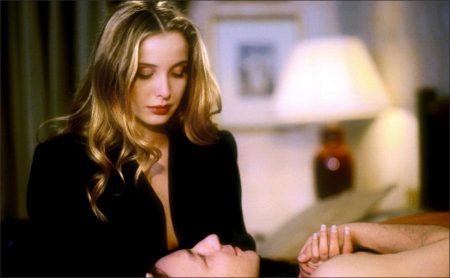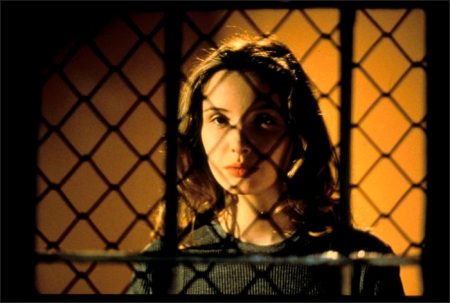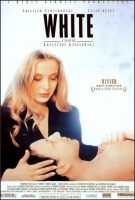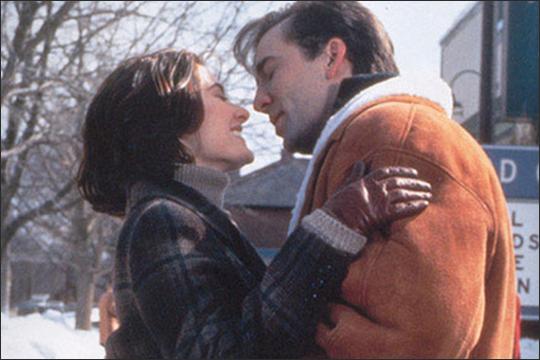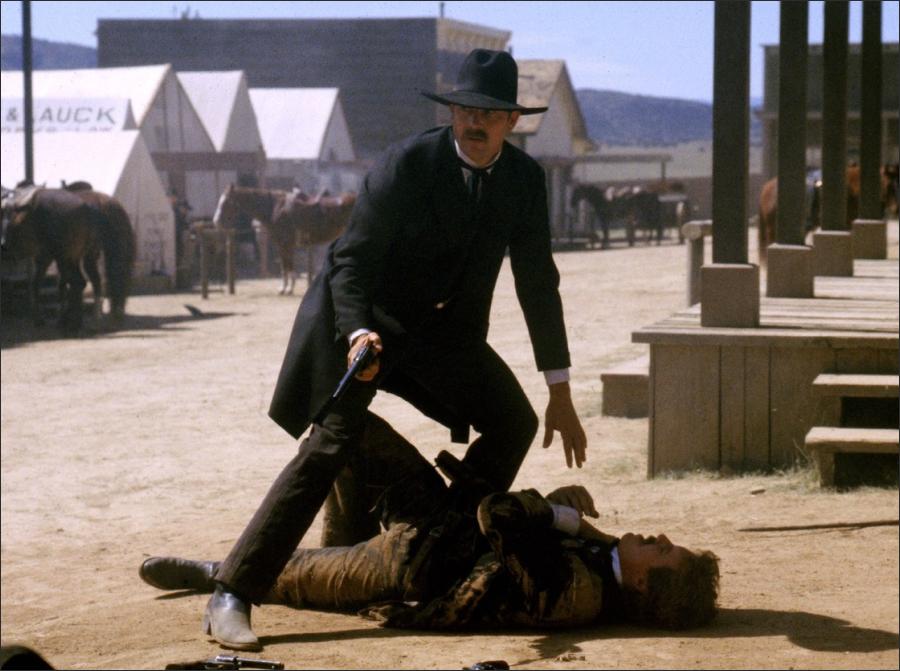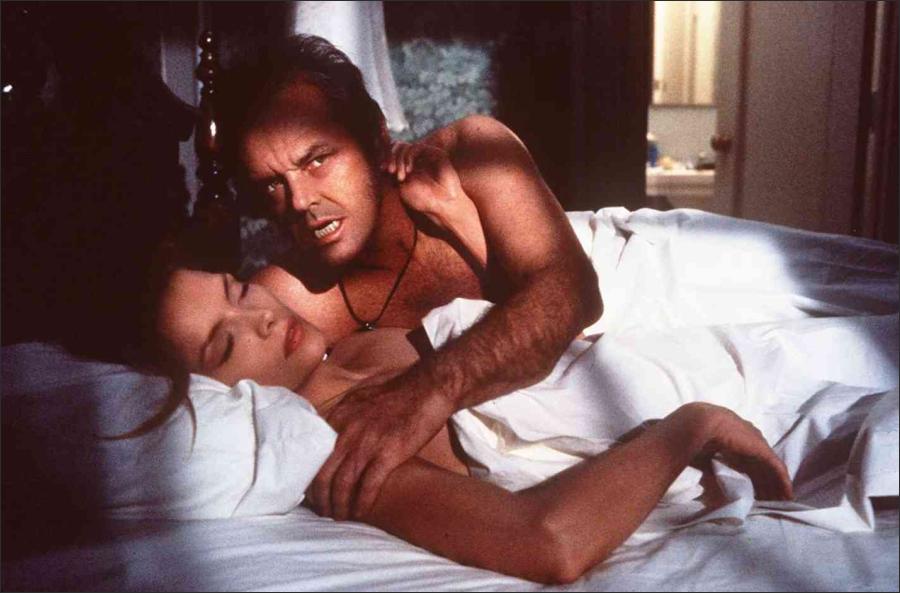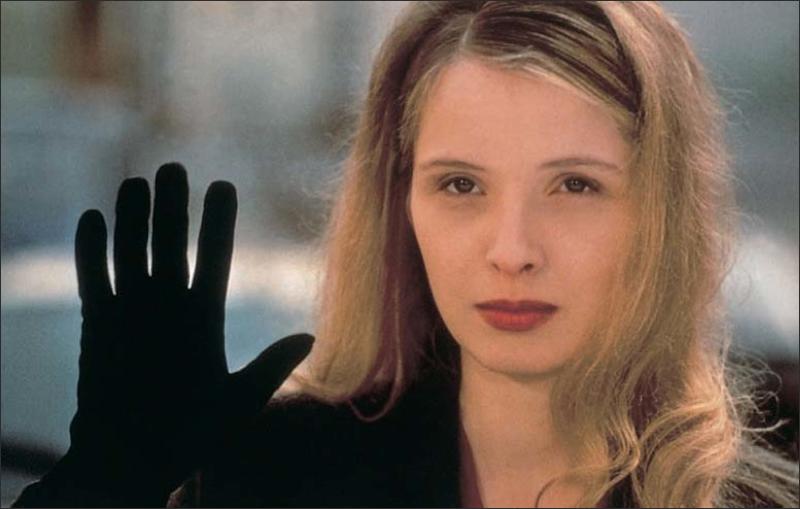Three Colors: White movie storyline. After opening with a brief, seemingly irrelevant scene of a suitcase on an airport carousel, the story quickly focuses on a Paris divorce court where Karol Karol (Zbigniew Zamachowski) is pleading with the judge — the same legal proceedings that Juliette Binoche’s character briefly stumbled upon in Blue.
The immigrant Karol, despite his difficulty in understanding French, is made to understand that his wife Dominique (Julie Delpy) does not love him. The grounds for divorce are humiliating: Karol was unable to consummate the marriage. Along with his wife, he loses his means of support (a beauty salon they jointly owned), his legal residency in France, and the rest of his cash in a series of mishaps, and is soon a beggar. He only retains a 2 franc coin.
In a Paris Métro station, performing songs for spare change, Karol meets and is befriended by another Pole, Mikołaj (Janusz Gajos). While Karol has lost his wife and his property, Mikołaj is married and successful; he offers Karol a job consisting of killing someone who wants to be dead but does not have enough courage to do it himself. Through a hazardous scheme, Mikołaj helps him return to Poland hidden in the suitcase shown at the beginning of the film, which is later stolen by employees at the airport. He returns to working as a hairdresser with his brother (Jerzy Stuhr).
Karol takes a job as a bodyguard in a seemingly innocent cash exchange office. Mikołaj meets Karol in a Warsaw Metro tunnel for the execution of the “suicide”, it turns out to be that Mikołaj is the intended victim and asks Karol to kill him. Karol shoots a blank into Mikołaj’s chest and asks him if he really wants to go through with it as the next bullet is real. Mikołaj refuses and is able to feel alive again.
Using his position as a deceptively foolish bodyguard, Karol spies on his bosses and discovers their scheme to purchase different pieces of land that they knew were going to be targeted by big companies for development and resell for large profits. Karol beats them to it, and then tells his ex-bosses that if they kill him all his estate shall go to the Church, and they are therefore forced to purchase all the land from him.
Three Colors: White (French: Trois couleurs : Blanc) is a 1994 French-Polish comedy-drama film co-written, produced, and directed by Krzysztof Kieślowski. White is the second in The Three Colors Trilogy, themed on the French Revolutionary ideals, following Blue and preceding Red. The film was selected as the Polish entry for the Best Foreign Language Film at the 67th Academy Awards, but was not accepted as a nominee.
White is about equality, with the film depicting Karol Karol, a shy man who, after being left by his wife in humiliating circumstances in Paris, loses his money, his residency, and his friends. As a deeply ashamed beggar in Warsaw, Karol begins his effort to restore equality to his life through revenge.
Krzysztof Kieślowski won the Silver Bear for Best Director at the 44th Berlin International Film Festival in 1994.
Three Colors: White (1994)
Directed by: Krzysztof Kieślowski
Starring: Zbigniew Zamachowski, Julie Delpy, Janusz Gajos, Jerzy Stuhr, Aleksander Bardini, Grzegorz Warchol, Cezary Harasimowicz, Jerzy Nowak, Cezary Pazura, Barbara Dziekan
Screenplay by: Krzysztof Kieślowski, Krzysztof Piesiewicz
Production Design by: Halina Dobrowolska, Claude Lenoir
Cinematography by: Edward Kłosiński
Film Editing by: Urszula Lesiak
Set Decoration by: Tomasz Kowalski, Dariusz Lipinski, Henryk Puchalski
Music by: Zbigniew Preisner
MPAA Rating: R for some sexuality and language.
Distributed by: MK2 Distribution (France), Miramax Films (United States)
Release Date: January 26, 1994 (France), June 10, 1994 (United States)
Views: 270
